In 1947, future hall of legend Pete Newell was starting his second season as a head coach at USF. In his first season the team had gone 13-14 and his prospects for his second year weren't a lot better. In the book A Good Man The Pete Newell Story, by Bruce Jenkins Coach Newell explains how an innovative approach and adapting to the players he had changed everything:
"At that time big guys were the guards; consequently, you'd have big men bringing up the ball, and little guys were the inside players and offensive rebounders down court by the basket. Now I had 6-6 John Benington playing guard, and he couldn't dribble the ball twice without kicking it. He was smart and a good rebounder, and a pretty good shooter, but I can't play him; he can't bring the ball up court. I've also got little Rene Herrerias, who's about 5-9 and quick, but he weighs about 135 pounds and can't get an offensive rebound in a month. He's not going to get too many shots off, either. That's a big reason why little guys didn't play at that time, because offensively they were at such a disadvantage.
So, I'm thinking, how can I get the best out of these two guys? I decide I'm going to play my big guys on both boards. I didn't have sense enough to know you weren't supposed to do it that way. I was just trying to get the best out of my team. Rene was good on defense, smart as a whip, and he was a natural quarterback on the dribble. And we had a 5-10 guy, Ross Giudice, who was also very quick. So we instituted a press defense to give our big guys a chance to get back on defense. On the West Coast it was novel and we just started killing people. They've got big guys bringing the ball up court, and they can't get past these two little gnats I got up there. That became our label at USF, the press defense. That's when we turned the whole thing around. We also did a lot better job rebounding, because I had my big men on both boards. Pretty soon, some other teams started to invert. It was the only way they could match up with us. And before long, everybody was inverted":
A year later Newell's "new press and inversion" took Madison Square Garden by storm as little known USF won the NIT Championship. Coach Newell innovated a new system of basketball to adapt to the players he had. Now this is how basketball is played worldwide but at the time his methodology was simply not the way the game was played. That didn't matter to Pete Newell.
Is there something you're doing just because that's the way it's always been done?

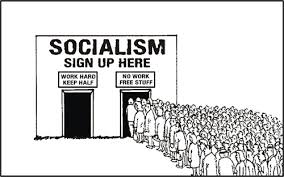
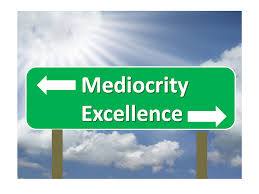
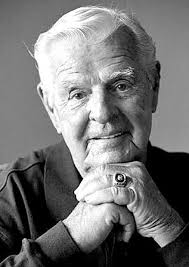

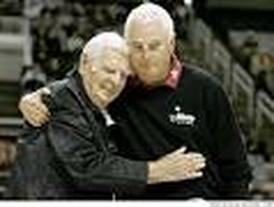
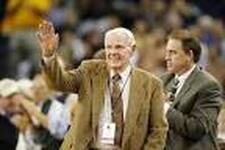
 RSS Feed
RSS Feed